Basic Addition Normal Worksheets for Ages 7-8
10 filtered results
-
From - To
Enhance your child’s math skills with our Basic Addition Normal Worksheets tailored for ages 7-8! Designed to make learning fun and engaging, these worksheets promote essential foundational skills through interactive exercises. Your child will master the fundamentals of addition, building confidence and competence in arithmetic. Each worksheet features a variety of problems ranging from simple addition to slightly complex scenarios, encouraging critical thinking and problem-solving. Ideal for both home and classroom use, our printable resources are perfect for reinforcing math concepts. Help your child develop a love for learning while they excel in basic addition skills! Start exploring today!
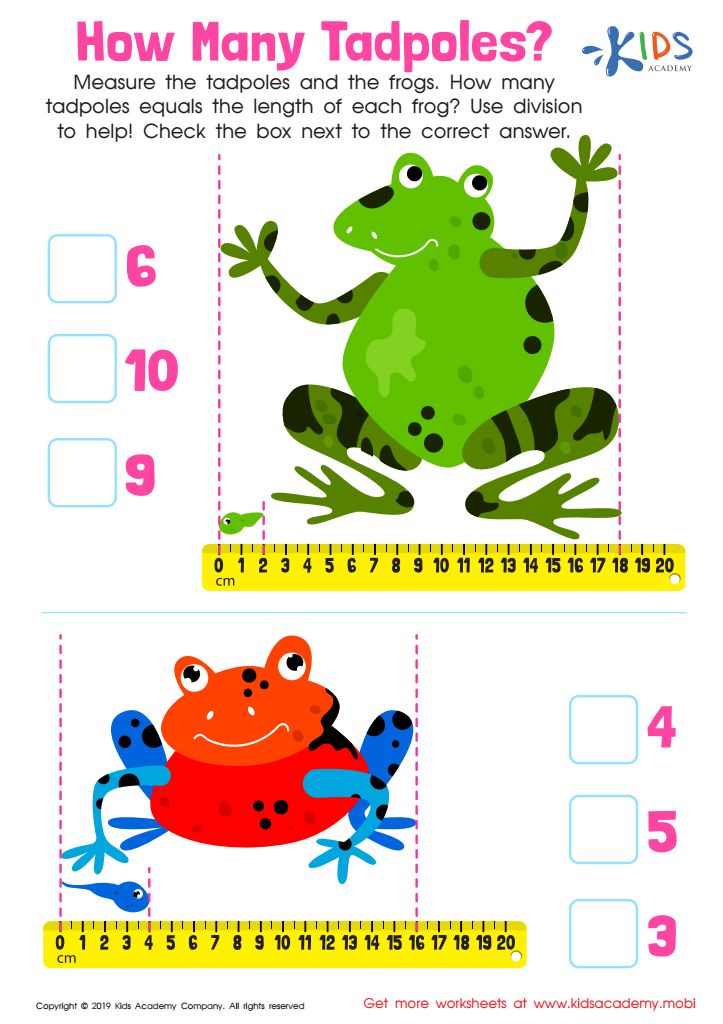

How Many Tadpoles Worksheet


African Wildlife: Giraffe Worksheet
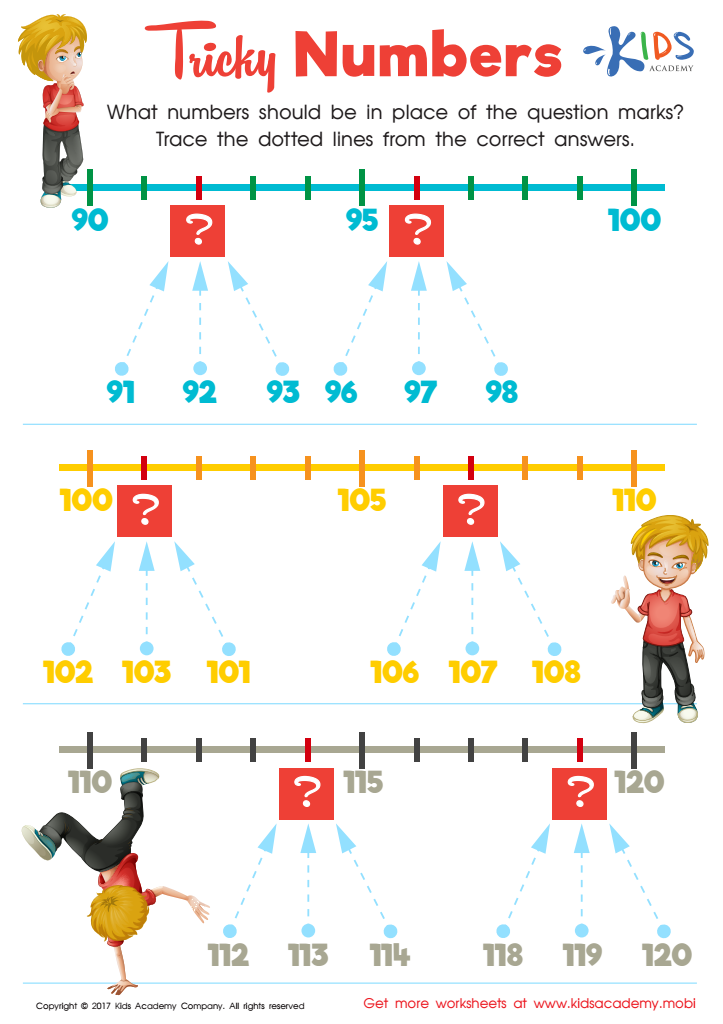

Tricky Numbers Worksheet
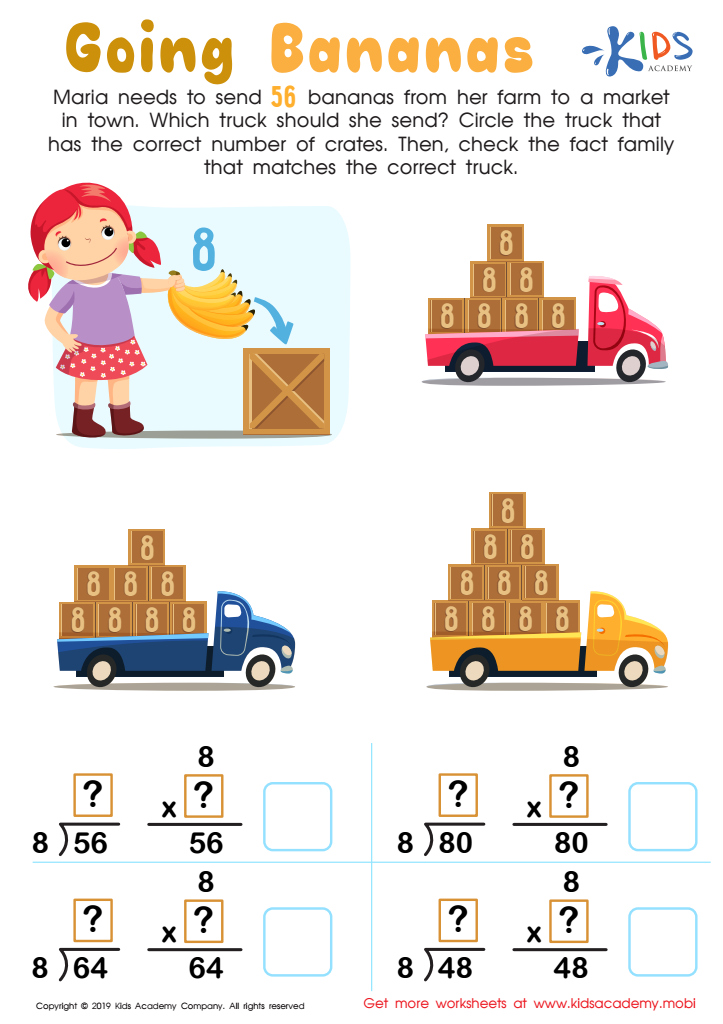

Going Bananas Worksheet
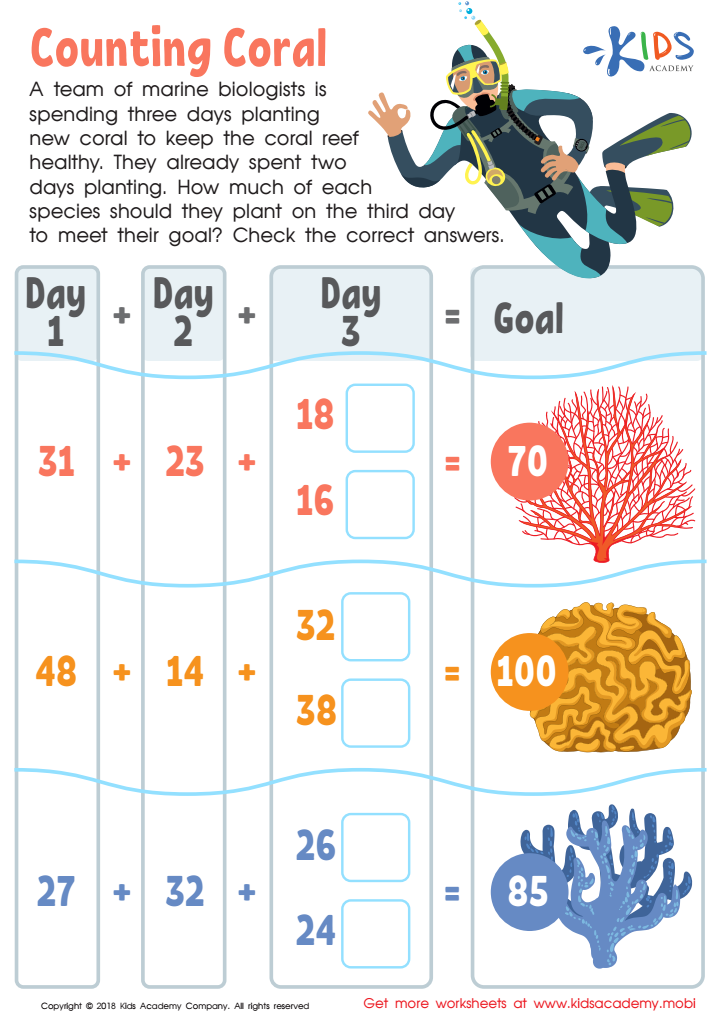

Counting Coral Worksheet
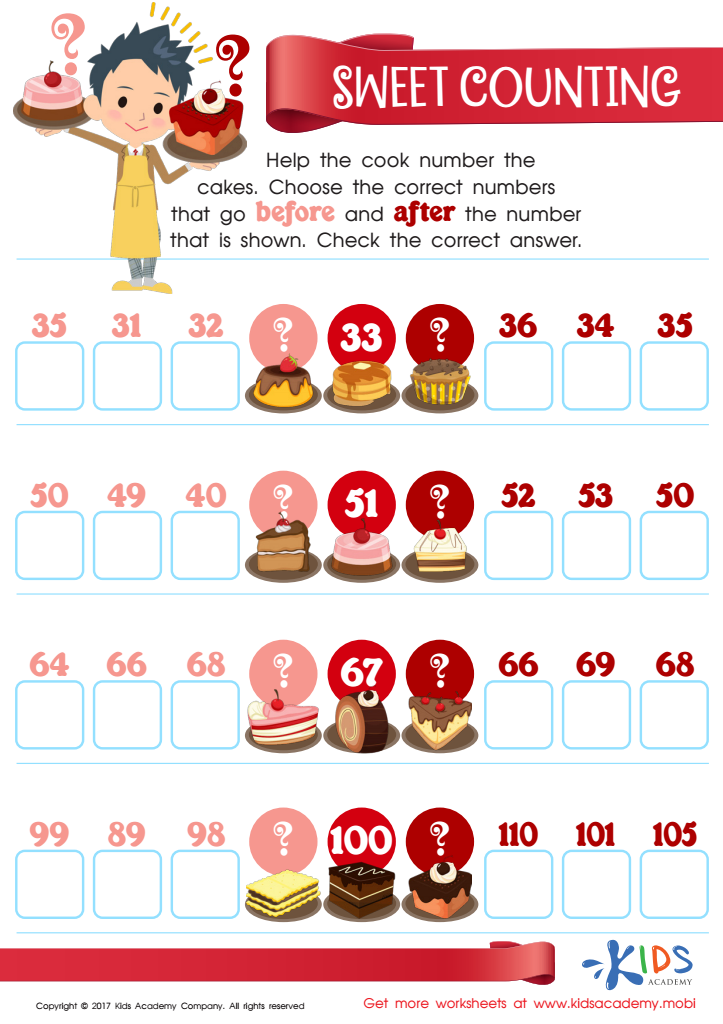

Sweet Counting - Part 1 Worksheet
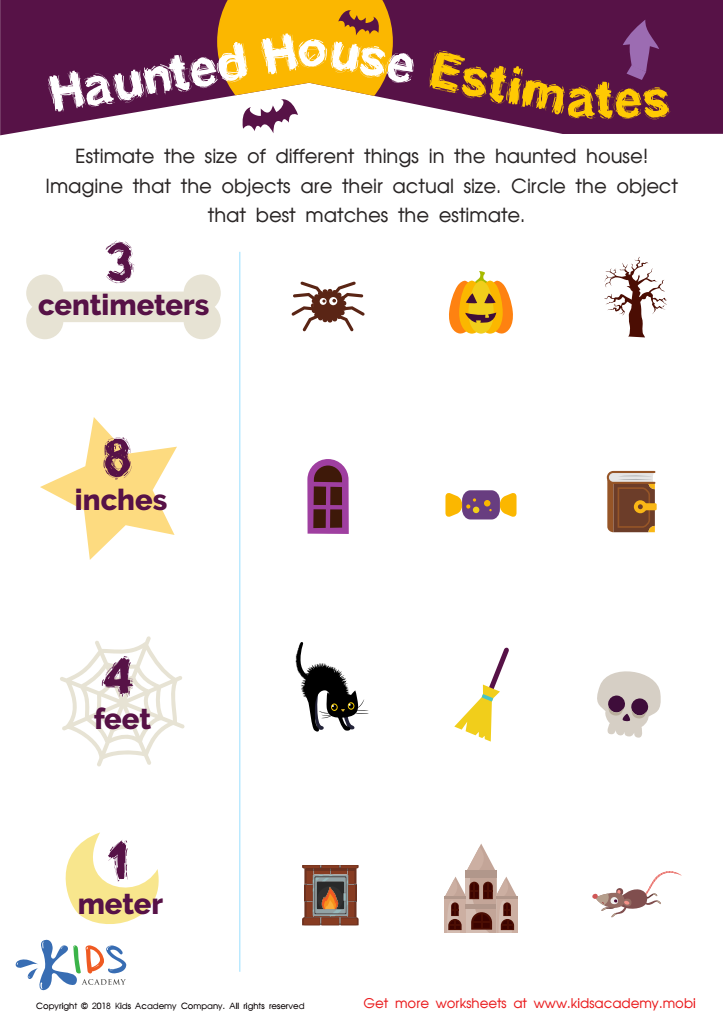

Haunted House Estimates Worksheet
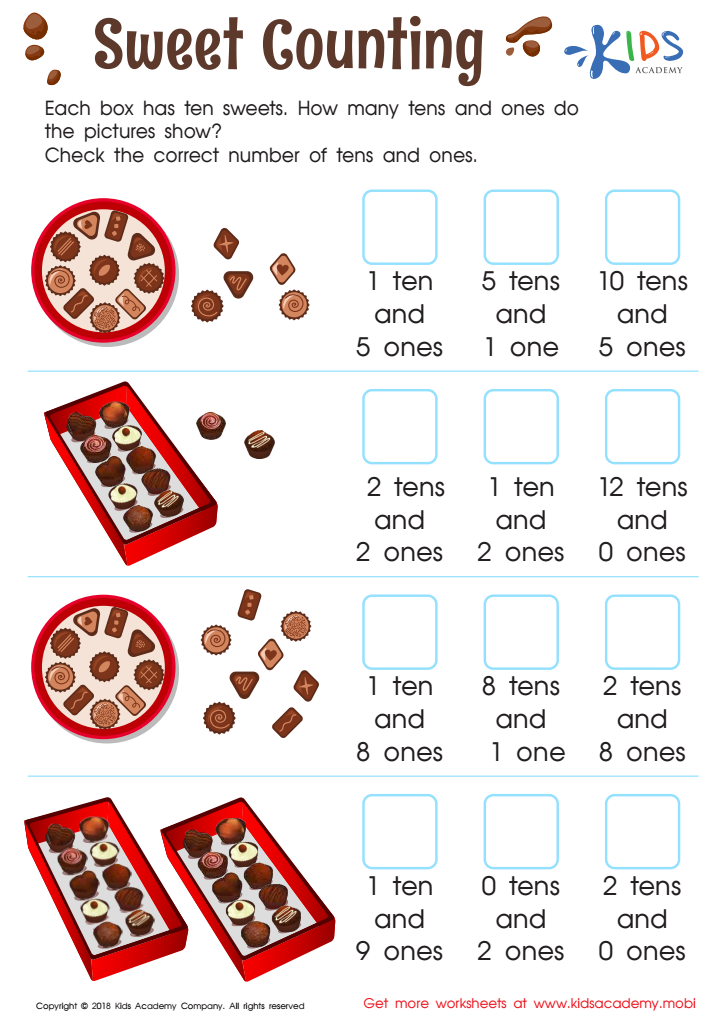

Sweet Counting - Part 2 Worksheet
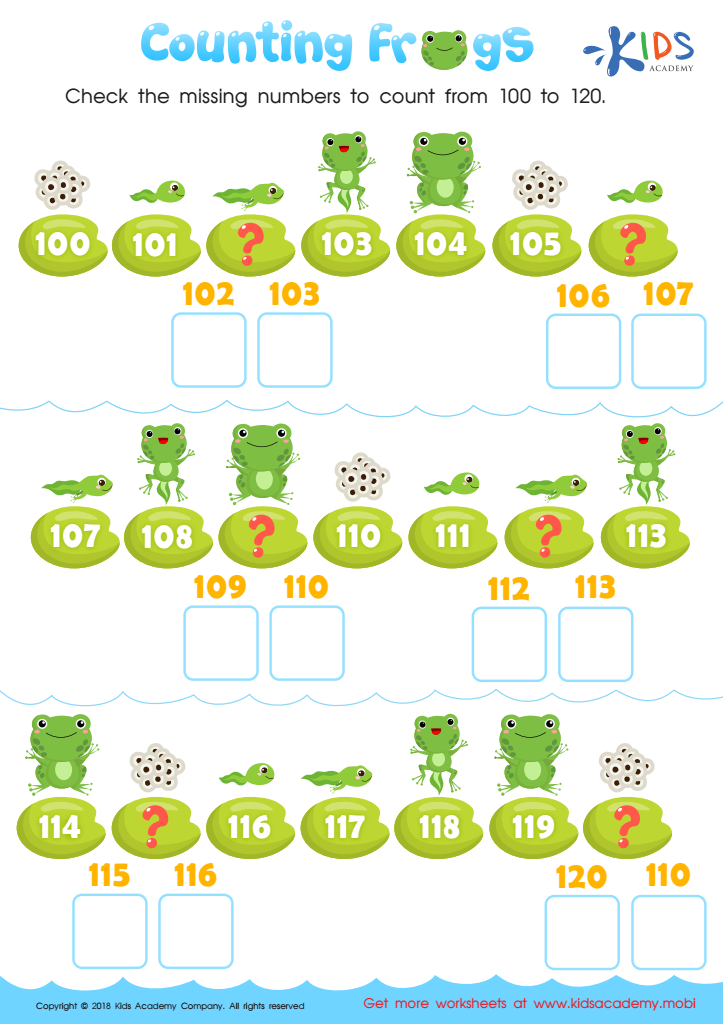

Counting Frogs Worksheet
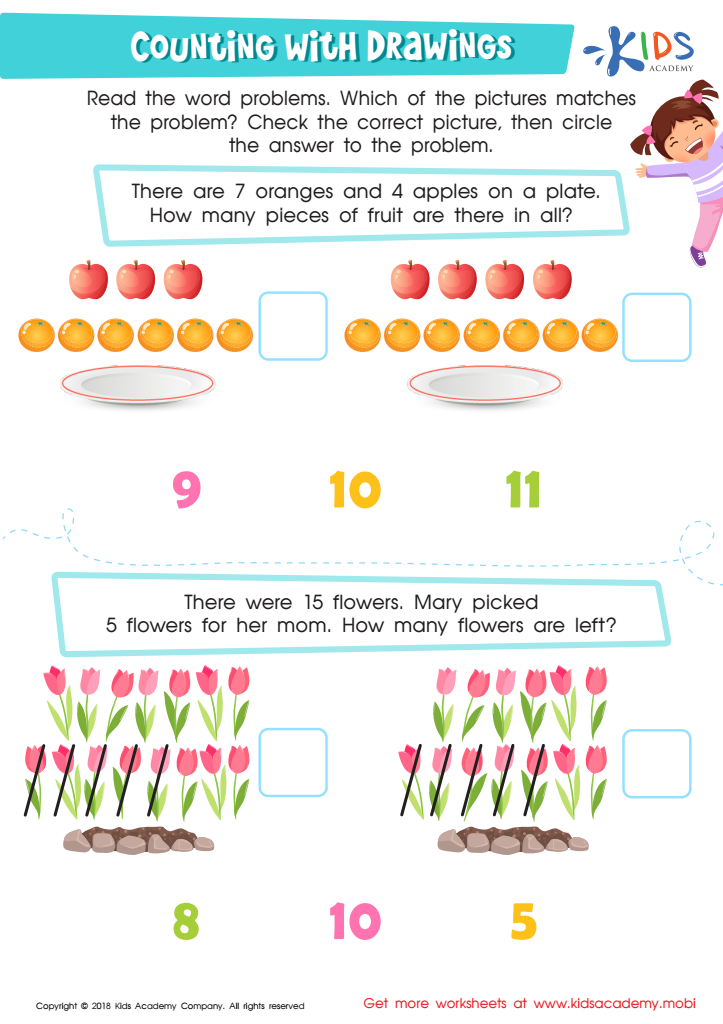

Counting with Drawings:Fruits & Flowers Worksheet
Understanding basic addition is fundamental for children ages 7-8, as it lays the groundwork for their future mathematical skills. At this developmental stage, children begin to transition from simple counting to more complex problem-solving, making it crucial for teachers and parents to foster a strong grasp of addition concepts.
By engaging with basic addition, children enhance their numerical fluency—not only learning how to find sums but also developing critical thinking skills as they manipulate numbers. Mastery in this area contributes to their confidence in math, which can influence overall academic performance and attitudes toward learning.
Furthermore, basic addition serves as a building block for later concepts, such as multiplication, division, and even fractions. If children struggle with addition, they may find advanced topics challenging, compounding difficulties in their educational journey.
Parents and teachers can support this learning through interactive activities, games, and real-life applications, turning what can be a dry subject into an engaging experience. Ultimately, nurturing these skills encourages a positive lifelong relationship with mathematics, preparing students for success in an increasingly quantitative world. Prioritizing basic addition sets children on a path to more complex reasoning, self-esteem in academics, and curiosity in learning.
 Assign to My Students
Assign to My Students


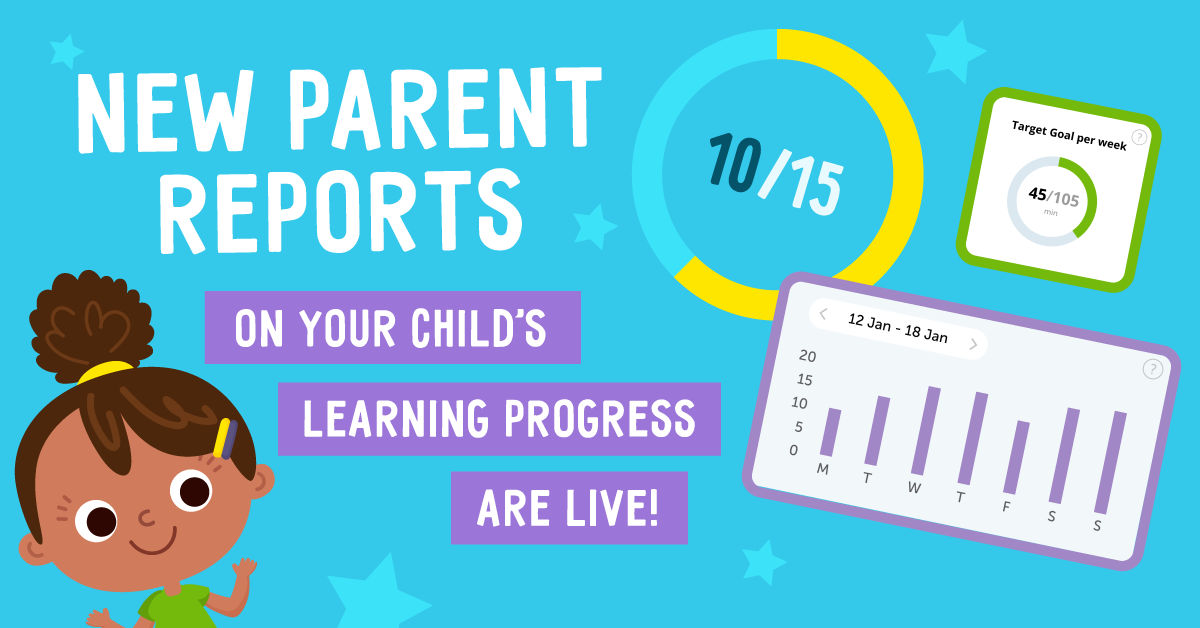
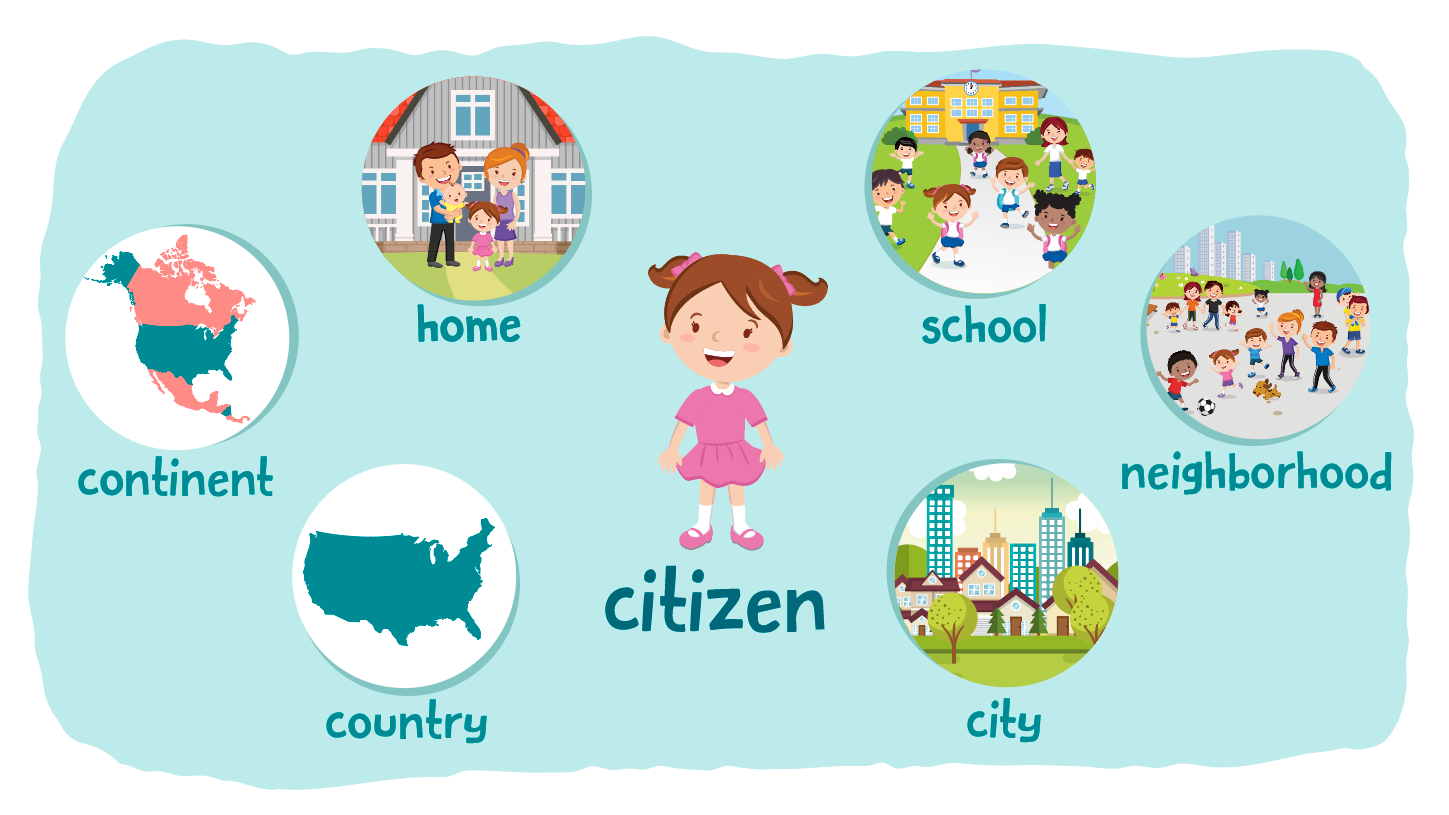
.jpg)











